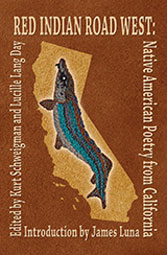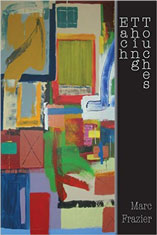The poem reflects on the Jewish fate in the Nazi era, on how atrocities and destruction took
place amidst a city magnificent for its river, its Romanesque castles and old world architecture.
The poet, unable to look away will continue to ask questions and turn to history for clues. In
the pre-script in "Guernica 2012,"Held writes that the bombing of Basque Guernica compelled Picasso
to paint the acclaimed Guernica, first shown in Paris in 1937. When it was shown in Spain in 1981,
it had to be displayed behind bulletproof glass:
"...That's the point of terrorism---
They have no native land,
The world is their target;
We are their targets.
Look at the carnage in Guernica,
In Kabul, Baghdad, Mumbai;
Ask, "Can we end up like that?"
And we ponder the possibility. Man has not learned to resolve conflicts, countless acts of
terrorism and destruction continue since Picasso painted Guernica. Terrorism is not something
that only happens far away or in the era of Hitler and Mussolini. In "That Tuesday Night,"
a poem referring to Sept 11, the poet fresh from witnessing the terrorist attacks and devastation in
Lower Manhattan looks at himself in the mirror:
"...and I knew that he
was lucky to have lived
to sixty-five---too young for WWII
and Korea, too old for Viet Nam---
lucky to have lived his soft
American life without much fear...
...the sirens screaming just up the street
at St. Vincent's, I knew nothing
could ever make me
safe again."
In the aftermath, the image of war invades our lives and intercepts the most private
moments as experienced by the lovers in the poem "War Lovers":
You grabbed my hair and pulled me
On top of you and I thrust into you
While the gray-headed anchor
In undertaker's suit intoned
Shock and awe, shock and awe, shock and awe"
There are poems about everyday life, neighbors and love ones, aging and life change.
But in this collection the poet's gaze is unflinching in confronting history's violence
and conflicts. In choosing to examine these dark chapters the poet is also saying no to
oblivion. In that way, Held is a poet of a moral vision even as he chides himself for
living this "soft American life," and in these powerful poems he holds open for us his
canvass of modern landscape that is also the "bleak splendor."
RED INDIAN ROAD WEST (Native American Poetry from California)-edited
by Kurt Schweigman and Lucille Lang Day, Scarlet Tanager Press, 2016
Reviewed by Tim Suermondt

I like how in the first poem of this intriguing anthology-Jennifer Elise Foerster's "California"
jumps right in with a stanza like this:
I went to the arcade of angels,
offered my bucket of shells-
in exchange I was given a map of hell.
Yes, there is to be found here "The Great Spirit," wolf dances and the like, but don't
be fooled. While the Native American reverence for nature and the spirituality of things
is real, the poets writing for this book take a hard look at a large slice of Indian concerns,
not all of it sweetness and light, but necessary in some of its hard truths-and though it's
difficult to define an individual let alone a people, this anthology gives it a sincere crack.
Tough times abound, but the poets and the folks in them don't flinch and dignity won't be so easily
erased. I particularly like what Natalie Diaz has done in her two poems "Why I Hate Raisins" and
"A Woman with No Legs". And I don't know if Leonard Peltier is innocent of the crime that has put
him behind bars for many years, but I found Stephen Meadows' "Through the Walls I Am Calling" to
be often powerful in his defense through the incantations:
I am calling you from Dull Knife
I am calling from Ishi
I am calling from Modoc Jack
I am calling from Red Cloud
..............
There is humor to be had here as well, even if you might have to cry through the tears a bit. I
especially enjoyed E.K. Cooper's poems: "Women Laughing" and "Pomo Shuffle"-and Sylvia Ross'
"Tribal Identity Grade Three" along with Sal Martinez' pokes at John Wayne.
From this rich California landscape (I remember as a boy watching tumbleweeds rolling down the
hills and taking over our front yard) I'd like to end with the poem I liked the best, a poem that
displays all the resiliency and humanity of Native American men and women who will always be the
real Americans. From Senna Heyatawin:
A Failed Poem by the Light of the Moon
Sam drank whiskey, we smoked enough weed
unleashed coughing fits-crackling night.
Tonight was warm enough to sit on the porch
watching ponies shadow the moonlight. She told me,
Maybe horses are wishes, whiskey tastes better.
EACH THING TOUCHES by Marc Frazier
Glass Lyre Press (Poetry), 2016
Reviewed by Tim Suermondt

What I particularly like about Marc Frazier's new book of poems EACH THING TOUCHES
is its expansiveness. So instead of having reams of poems written to "Life in Pittsburgh"
(though I'm sure it's a nice city) or focusing on "Saving all the Whales" (though I'm all for saving them),
we get an interesting terrain of subjects, among others: Diaghilev, Pioneers, hunger strikers,
looks at the works of painters, writers and film.
Yet, every poet has his/her concerns that move up to the front. For Frazier it's deft descriptions
of nature-fitting coming from a poet who has a poem titled "The Weight of Each Word":
I hear the bold claims of America and tropical birds,
synapses fire, coasts wander.
I see the sudden dip of yesterday's gulls,
creatures caught in the heat of mating,
the bay of Fundy's lonely sweep,
flashes of flowers, of flood,
the shell's swirl mimicked in our patterns.
And then we have his take on growing up, trying to understand the myriad mysteries
of families, the good and the bad and everything in between. While it's hard to
consolidate all the territory, "Taskmasters" puts things in stark perspective:
On a wall I see father's chart
of weekly chores.
I redid them again and again,
but they didn't pass inspection.
My broom searched every corner,
every crack
of a dusty basement.
Anything worth doing
is worth doing well.
That searching broom says it all.
And, finally, Frazier shows himself to be a love poet-or more correctly a searcher of love, one who faces
love's disappointments with strength in his knowledge that despite the pain often involved, love is as
necessary as breathing-the whole body involved in the journey. The last poem "What's to Come" ends with:
Who then shall inherit the earth?
When blood stills on the body.
Bones wither.
Ribs splinter.
Burnt-out houses-a humble
housewife taking stock
as bittersweet grows silent.
The seawall groans.
A detached fan of broken fingers
waves in the city of corpses.
Sleep my children.
The azaleas know.
But as long as there are azaleas, there's always, as the poets like Marc Frazier remind us,
hope and even love.


If you would like to be added to my monthly e-mail newsletter, which gives information on readings,
book signings, contests, workshops, and other related topics...
To subscribe to the newsletter send an email to:
newsletter@cervenabarvapress.com
with "newsletter" or "subscribe" in the subject line.
To unsubscribe from the newsletter send an email to:
unsubscribenewsletter@cervenabarvapress.com
with "unsubscribe" in the subject line.

Index |
Bookstore |
Our Staff |
Image Gallery |
Submissions |
Newsletter |
Readings |
Interviews |
Book Reviews |
Workshops |
Fundraising |
Contact |
Links
Copyright © 2005-2014 ČERVENÁ BARVA PRESS - All
Rights Reserved

